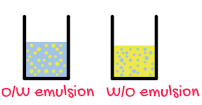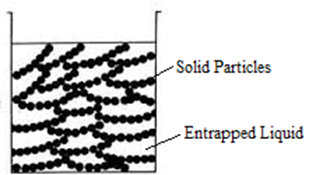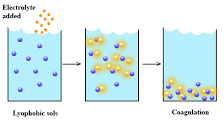Science > Chemistry > Colloids > Emulsions A colloidal system in which both the dispersed phase as well as dispersion medium are immiscible or partially miscible liquids is called an emulsion. e.g. Milk, cod liver oil, oil paints, vanishing cream, cold creams, etc. are emulsions. Generally, one of the two liquids is water and the […]

- Tags Chemistry, Coalescence, Cobalt chloride test, Colloidal dispersions, Colloidal solution, Colloidal state, Colloids, Crystalloids, De-emulsification, Dilution, Dilution test, Dispersed phase, Dispersion medium, Dye solubility test, Electrical conductivity test, Emulsifier, Emulsifying agent, Emulsion, Fluoroscence test, Oil in water type emulsion, Precipitation, Solution, Spreading test, Suspension, True solution, Viscocity test, Water in oil type emulsion


